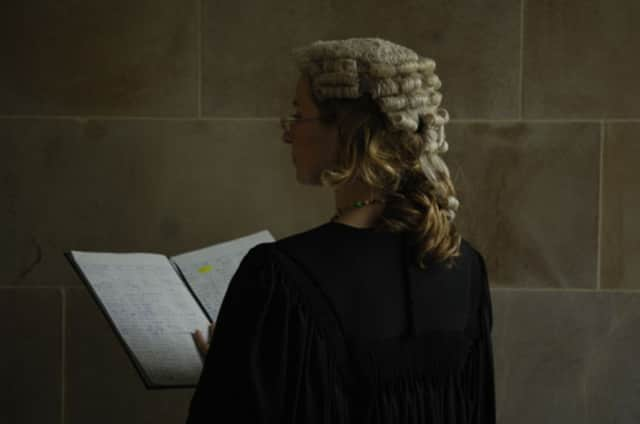Scots law damaged by outside buyers


The recent division in Scotland over our attitude to statehood was underpinned by widespread agreement at a more fundamental level – the aspiration for the enhancement of the Scottish nation.
Some thought that it would be better served with the trappings of statehood, others that it would be better served by union within the British state.
Advertisement
Hide AdAdvertisement
Hide AdBoth factions prioritised the education, employment and treatment of its people, the future of its children and the proper allocation of its national resources. There was so much more agreement than disagreement.
One aspect of the Scottish nation which has all along received special recognition and respect, home and abroad, has been the separate and distinct Scottish legal system. This distinction was specifically preserved within the Treaty of Union “in all time coming”. These provisions have, by and large, been honoured through the centuries of union.
Scotland has enjoyed a legal system quite separate and distinct from that of the rest of the UK. This has been no narrow, inward-looking system. After the UK had joined the European Union, a huge compliment was paid to the Scottish legal system. Its leading judge, Lord MacKenzie Stewart, was appointed as the President of the European Court. After that, Lord Mackay of Clashfern was appointed as Lord Chancellor of Great Britain.
With its origins in Roman law, the Scottish legal system stands in a special position of communion across the divide which separates the European tradition of Roman, civil law from the Anglo American Common Law systems which dominate much of the remainder of, at least, the western world.
Why then, we have to ask, when England took the step some years ago of changing its legal system to allow commercial entities to acquire ownership and control of law practices (“Tesco Law”) did the nationalist Scottish government follow suit in Scotland? This was strenuously opposed by our own Society, the largest voluntary, national society for Scottish solicitors – and by many others. It appears also to be a clear contradiction of our European commitment to preserve the independence of the legal profession.
At least part of the answer, I have to suggest, points to a fresh take on the “parcel of rogues” theme. Certain large Scottish firms were suffering from financial conditions which threatened the recovery by some partners of their financial capital from these firms.
Handing ownership or partial ownership of the law practices to banks or other investors would solve that particular problem, at least in the short term. The thing is, what do you throw in the fire after you have burned the furniture?
Anyway, as our Society and others predicted, the new regime had difficulty in getting off the ground. With its inherent contradictions, no coherent regulatory framework has been devised and the whole process has stalled.
Advertisement
Hide AdAdvertisement
Hide AdIn the meantime, the immediate drivers, the legal firms in question, are now off the road and out of the picture. These have been acquired by non-Scottish businesses in a process fuelled by the prospect of Tesco Law. This has decimated the number of large and middle-sized law firms owned and controlled from within Scotland – the very opposite of the enhancement of the Scottish nation.
Rather, it has put at risk the future of one of the most visible and essential underpinnings of the nation, its indigenous legal system. There was never any good reason for handing the ownership and control of law firms to commercial entities.
Now, even the less salubrious reason for these measures has been removed. Nobody can predict when regulations will emerge to enable this anathema to be given effect. This is a splendid opportunity for the Scottish Government to make a principled stand for the Scottish nation by blowing Tesco Law out of the statute book forever. This, as provided in the Treaty of Union three centuries ago, could secure the separate and distinctive independence of the laws and the courts and the legal profession of the Scottish nation “in all time coming” in a true enhancement of the Scottish nation and identity.
• Michael Sheridan is secretary of the Scottish Law Agents Society: www.scottishlawagents.org
SEE ALSO